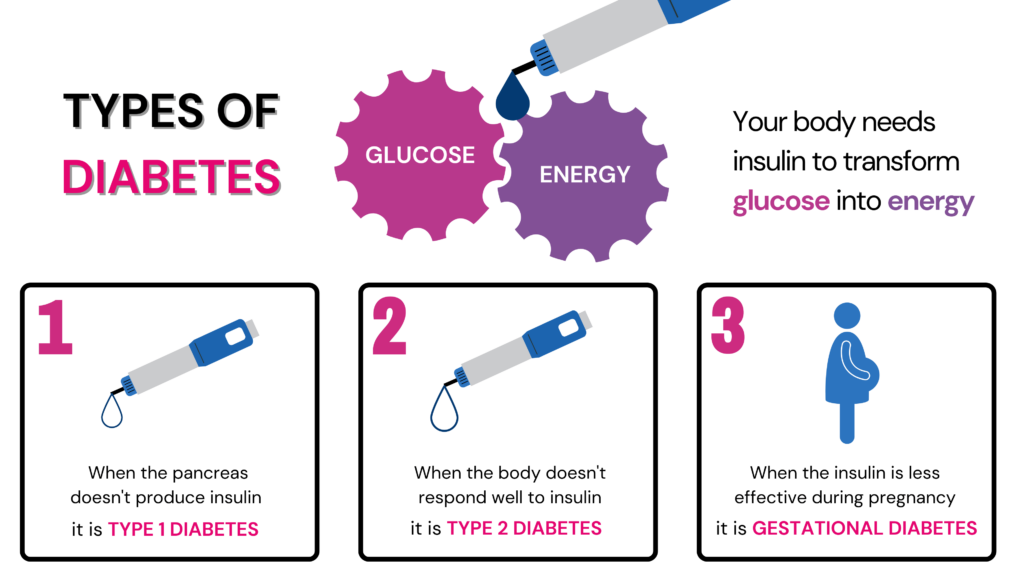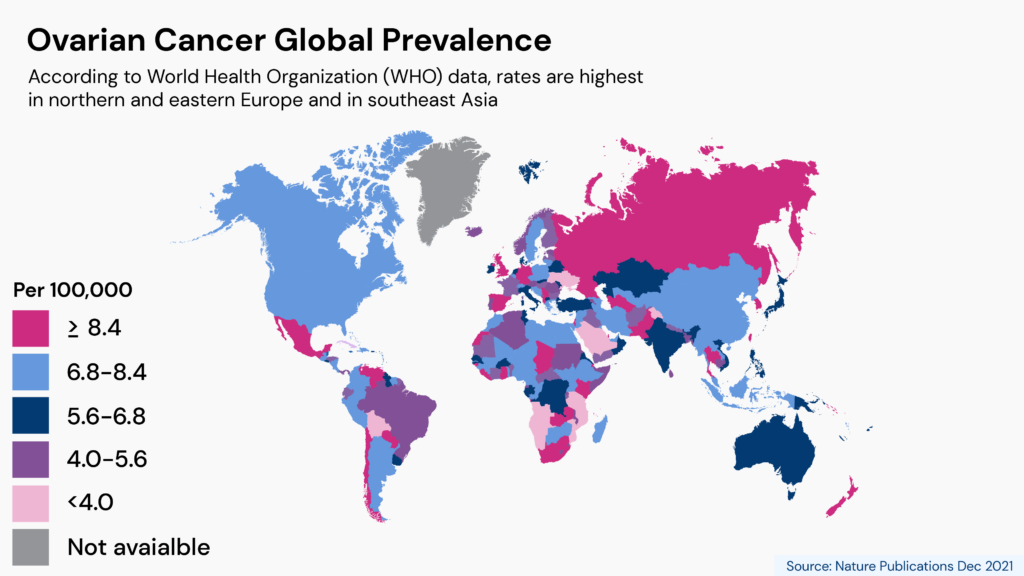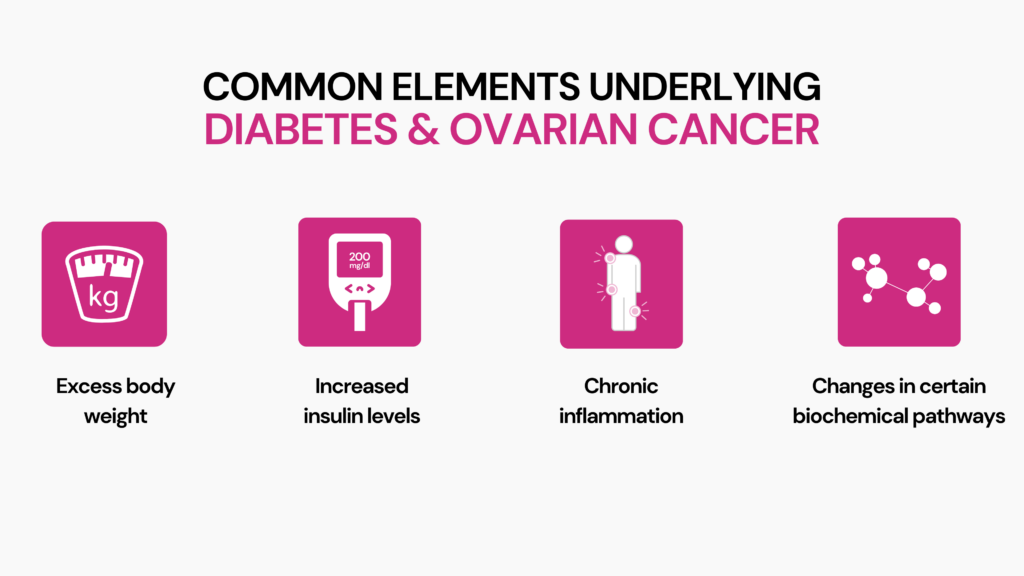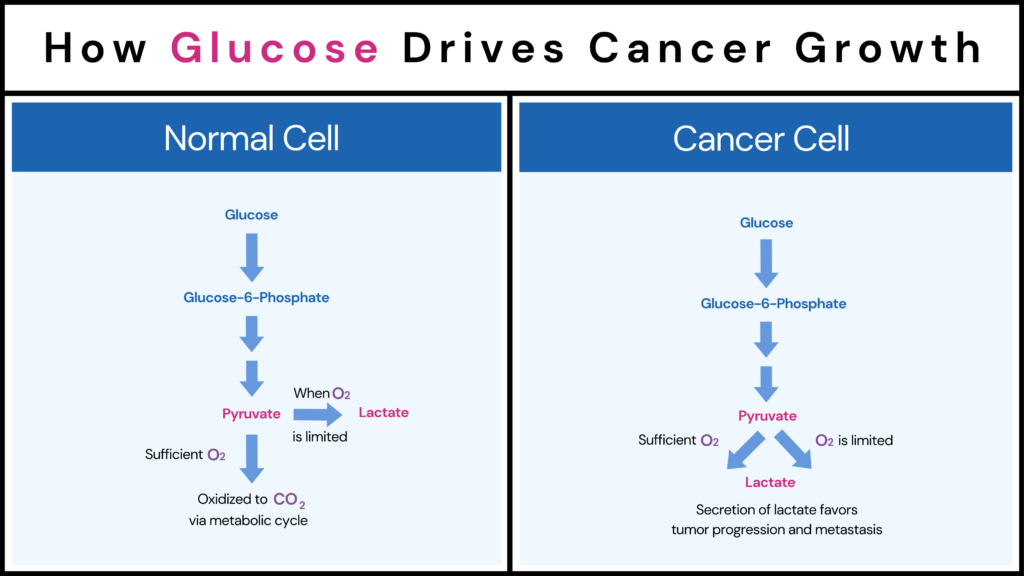When it comes to ovarian cancer, identifying the risk factors is crucial for early detection and prevention strategies. In this article, we delve into an intriguing area of research: is diabetes one of ovarian cancer risk factors? We investigate the scientific evidence and examine whether diabetes could influence the development of ovarian cancer.
Genetic ancestry tests are becoming increasingly popular. While your DNA can be used to learn about your roots, did you know that it can also reveal important things about your health risks and wellness aspects? This allows you to take proactive measures for health conditions, even before the symptoms appear, thereby preventing it. You can upload your DNA data to learn 1,500+ things about your health. Learn more.
Understanding Diabetes
Diabetes is a metabolic disease characterized by high blood sugar levels.
If your blood sugar levels are high but not high enough for diabetes, you may have prediabetes.
People with prediabetes are at a greater risk of developing diabetes.
However, with the right lifestyle modifications, it is possible to reverse prediabetes.
Types of Diabetes
Depending upon the cause, diabetes is of three types:
- Type 1 diabetes
In this type of diabetes, the body makes little or no insulin.
This happens because the body’s immune cells destroy the pancreatic cells that produce insulin. Since type 1 diabetes is usually diagnosed in children and young adults, it is also called juvenile diabetes. However, it can occur at any age.
Individuals with type 1 diabetes are recommended to take insulin daily for normal functioning. - Type 2 diabetes
This is the most common form of diabetes and occurs when the body is unable to use the insulin produced by the pancreas effectively or the pancreas doesn’t produce sufficient insulin.
As a result, people with type 2 diabetes have high blood sugar levels.
Unlike type 1 diabetes, type 2 diabetes is preventable.
However, factors like being overweight or obese, a sedentary lifestyle, an unhealthy diet, and a family history of the disease can increase your risk. - Gestational diabetes
This type of diabetes develops in pregnancy but goes away after childbirth.
However, women who develop gestational diabetes have a higher chance of developing type 2 diabetes later in life.

How Does Diabetes Affect the Body?
Glucose is the primary source of energy in the body. We get this glucose from the food we eat.
The pancreas secretes a hormone called insulin to help this glucose enter each cell in the body to generate energy.
In people with diabetes, glucose stays in the blood and is unable to reach the body cells for either of the following reasons:
- The body is not making enough insulin, or
- The body is unable to use the insulin properly
Diabetes is a known risk factor for various diseases and complications.
This condition may increase your risk for kidney, eye, nerve, or heart damage.
Recent studies have also linked diabetes to some types of cancers.
Understanding Ovarian Cancer
Cancer is a condition characterized by the excessive growth of abnormal cells in the body.
These cells form a tumor.
Ovaries are a pair of organs that produce eggs (for reproduction) in females.
When cancer affects the ovaries, it is termed ovarian cancer.
Ovarian cancer is the 8th most common cancer occurring in women.
A woman’s lifetime risk of developing ovarian cancer is 1 in 78.
Ovarian cancer occurs when there are abnormal genetic changes (mutations).
Two genes known to be high risk for ovarian cancer are the BRCA1 and the BRCA2.
Mutations in these genes are also associated with other gynecological cancers like breast cancer.

Types of Ovarian Cancer
There are different types of ovarian cancer, depending on the tissue affected.
The most common type of ovarian cancer is epithelial cell cancer which begins in the cells that cover the ovary.
Other less common types of ovarian cancer are stromal and germ cell tumors.
While few ovarian cancer are benign, others are malignant.
Also Read: New Study Finds
Hysterectomy And Tubal Ligation May Increase Heart Disease Risk
Ovarian Cancer Risk Factors
While any person with ovaries can develop ovarian cancer, some are at a higher risk.
Risk factors for ovarian cancer include:
- Family history of the condition (biological mother, sister, or daughter having the condition)
- Inherited the mutations BRCA1 or BRCA2 genes
- Presence of other genetic disorders like Lynch syndrome
- Endometriosis
- History of hormone replacement therapy (HRT)
- Obesity
Diabetes As A Ovarian Cancer Risk Factor
The relationship between type 2 diabetes and cancer has long been recognized.
Several studies link diabetes to an increased risk of various cancers, such as breast and endometrial tumors.
Furthermore, individuals with diabetes facing these diseases often experience more severe outcomes.
The impact of elevated blood sugar levels goes beyond diabetes management, as it leads to molecular changes that create a more favorable environment for tumor growth.
These changes can result from oxidative stress, inflammation, or even the facilitation of new blood vessel formation, which provides nourishment to rapidly dividing cells.
The metabolic abnormalities in association with obesity and diabetes are said to contribute significantly to the development and progression of cancer.
This could happen due to changes in the various signaling pathways in the body that get disrupted due to high blood sugar levels.
Some alterations from diabetes that promote cancer may be permanent, lasting even after blood sugar is under control, due to a phenomenon known as “metabolic memory.”
The Common Elements Underlying Diabetes And Ovarian Cancer

Recent research has provided strong evidence linking diabetes to an increased risk of ovarian cancer.
The research also suggests that there are common factors between type 2 diabetes and ovarian cancer, giving us clues about how diabetes might contribute to the development of ovarian cancer.
- One factor that contributes to both type 2 diabetes and ovarian cancer is obesity, which means carrying excess body weight.
- Another common element is increased levels of insulin, a hormone produced by the body.
- Chronic inflammation, which is a long-lasting state of inflammation, is also seen in both conditions.
- Additionally, there are increased activities in certain biochemical pathways that regulate metabolism and higher levels of steroid hormones in the ovaries.
Researchers have discovered that a specific biochemical pathway called STAT3, which is more active in type 2 diabetes, also plays a role in helping ovarian cancer spread.
Another connection lies in the clinical data, which indicates that type 2 diabetes leads to higher levels of ovarian hormones that cause chronic inflammation.
This chronic inflammation can create an environment that encourages the formation and progression of tumors.
Moreover, the biochemical effects of diabetes can activate signaling pathways that promote ovarian cancer growth.
The side effects of diabetes can increase the levels of estrogen - research suggests that this may play a role in ovarian cancer.
Understanding these connections between type 2 diabetes and ovarian cancer can help us learn more about the risk factors and underlying mechanisms of this disease.
Does Glucose Drive Ovarian Cancer?
According to a 2021 review, diabetes increases the risk of developing various cancers, including ovarian cancer.
Cancer cells and tumors are actively dividing cells that show abnormal growth. So, they have high energy needs.
For this reason, in people with good blood sugar control, cancer cells grow more slowly and are often self-limiting.
However, in people with diabetes, the elevated blood sugar levels can feed the energy-hungry cancer cells, thereby encouraging their growth.
The growth and progress of ovarian cancer may be glucose-driven.

Does Diabetes Make Ovarian Cancer Treatment More Challenging?
It has been found that diabetes can complicate cancer treatment.
At the same time, some newer treatments, like targeted therapy, can trigger the development of diabetes.
This is apparent in patients at a higher risk of developing the condition.
Diabetes makes cancer treatment challenging because:
- Most individuals with diabetes have other health conditions that can complicate treatment.
- People with the condition have weaker immunities, making them more prone to infections that can affect overall treatment and prognosis.
How To Keep Blood Sugar Levels At Bay To Lower Cancer Risk?
Diabetes management requires a multidisciplinary approach in people who have cancer.
Depending upon the anticancer therapy you may be on, you may require managing hyperglycemia, fluids and electrolytes, hypertension, and cardiovascular complications.
Here are some ways to keep your blood sugar levels under control to lower your ovarian cancer risk:
- Choose low-glycemic index foods: Opt for foods with a low glycemic index (GI), as they have a smaller impact on blood sugar levels.
Examples include whole grains like oats, barley, and quinoa and non-starchy vegetables like leafy greens, broccoli, and cauliflower. - Control carbohydrate intake: Be mindful of your carbohydrate intake and focus on consuming complex carbohydrates rather than simple sugars.
- Include protein and healthy fats: Incorporate lean protein sources, such as poultry, fish, tofu, and beans, into your meals. Protein can help slow down the digestion of carbohydrates and prevent sharp rises in blood sugar levels.
- Weight management: If overweight or obese, losing weight through a combination of a healthy diet and regular exercise can significantly improve blood sugar control.
Weight loss can enhance insulin sensitivity and reduce the risk of developing diabetes-related complications, including cancer. - Limit alcohol consumption: Limit alcohol intake or avoid it altogether, as it can raise blood sugar levels and contribute to weight gain.
If you choose to drink, do so in moderation and always consult with your healthcare provider, especially if you have diabetes. - Monitor blood sugar levels: Regularly check your blood sugar levels as advised by your healthcare provider.
This helps you stay aware of your glucose levels and make necessary adjustments to your diet and medication if required.
Remember, these recommendations are general guidelines, and it's important to consult with your healthcare provider for personalized advice based on your individual needs and medical history.
Summary: Is Diabetes One Of Ovarian Cancer Risk Factors?
- Diabetes can increase the risk of ovarian cancer. Shared risk factors include obesity, high insulin levels, chronic inflammation, altered metabolism, and increased steroid hormones in the ovaries.
- Elevated blood sugar levels in diabetes create a favorable environment for tumor growth in ovarian cancer. This can happen due to oxidative stress, inflammation, and the formation of new blood vessels.
- It's important to manage blood sugar levels to lower the risk of ovarian cancer. Lifestyle changes like choosing low-glycemic index foods, controlling carbohydrate intake, staying physically active, maintaining a healthy weight, and monitoring blood sugar levels regularly can help with this.
- Consulting with healthcare professionals is crucial for personalized advice on managing diabetes and reducing the risk of ovarian cancer. By effectively managing diabetes and making necessary lifestyle adjustments, it may be possible to lower the risk of developing ovarian cancer.
References
- https://www.healthline.com/health/diabetes-and-ovarian-cancer
- https://bmjopen.bmj.com/content/10/12/e040137
- https://www.niddk.nih.gov/health-information/diabetes/overview/what-is-diabetes
- https://www.cancer.org/cancer/types/ovarian-cancer/about/key-statistics.html
- https://medlineplus.gov/ovariancancer.html
- https://pubmed.ncbi.nlm.nih.gov/29458977/






